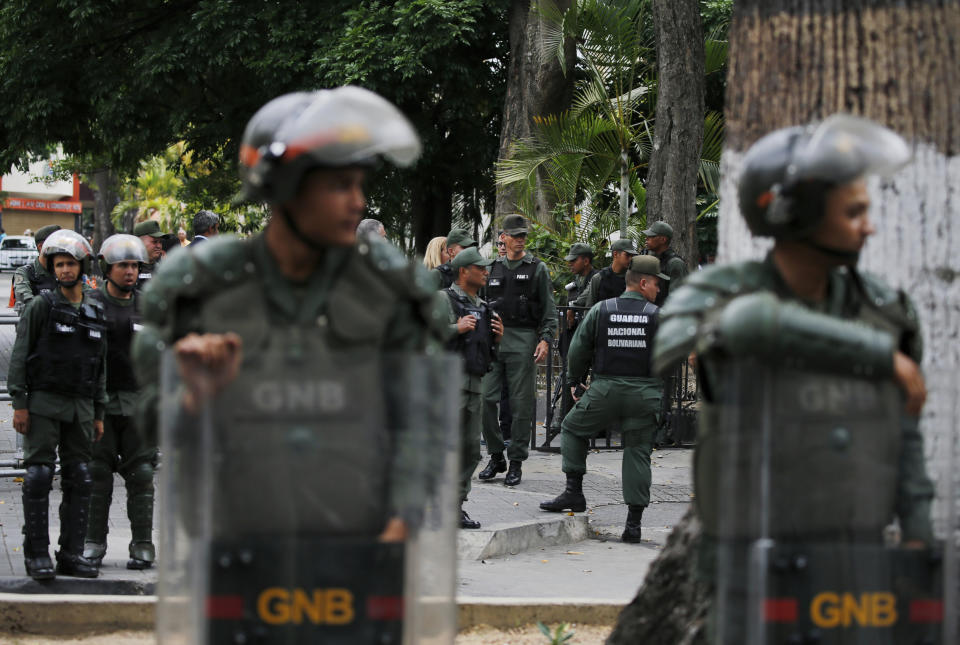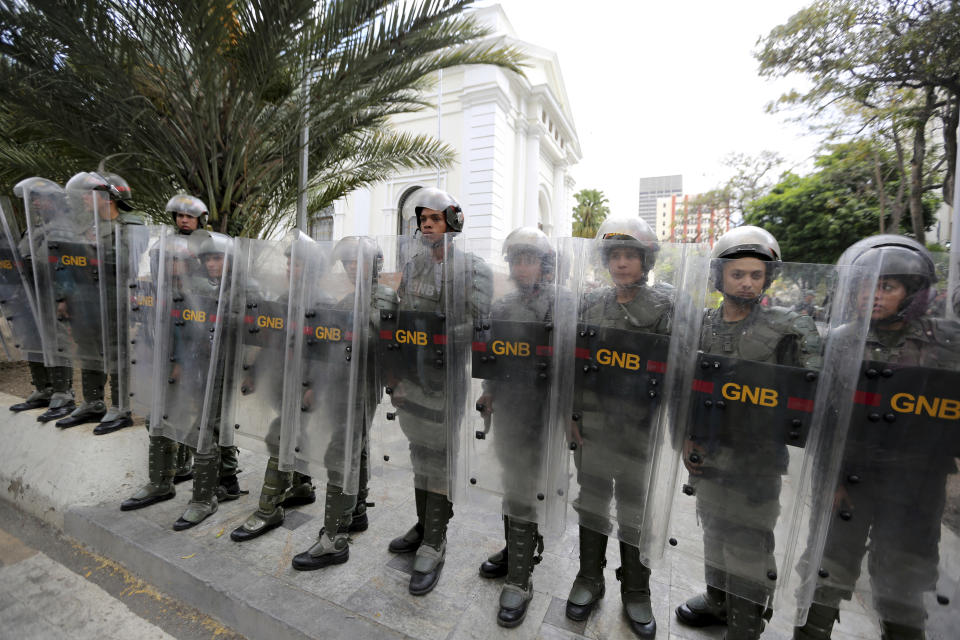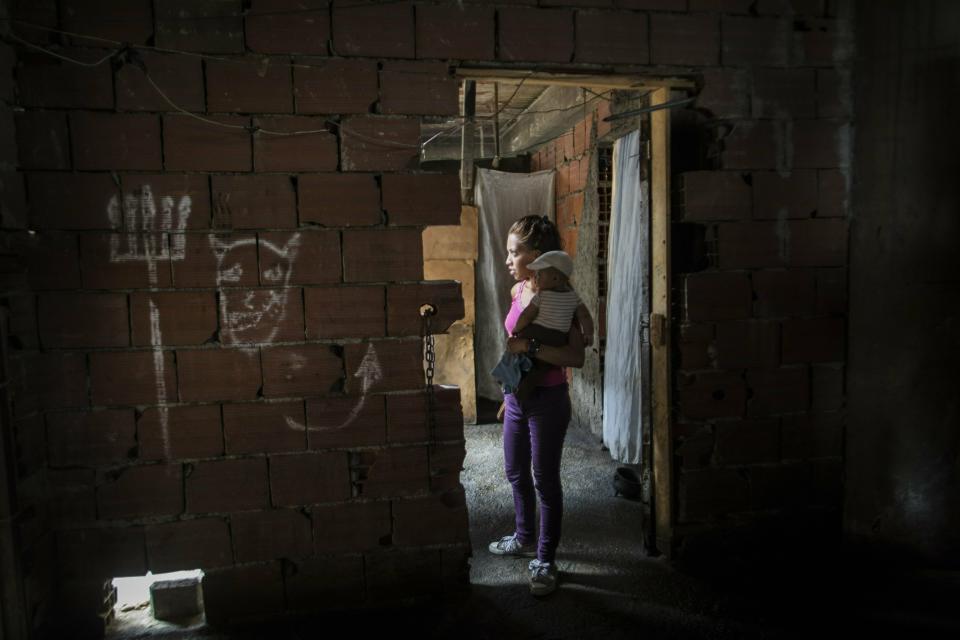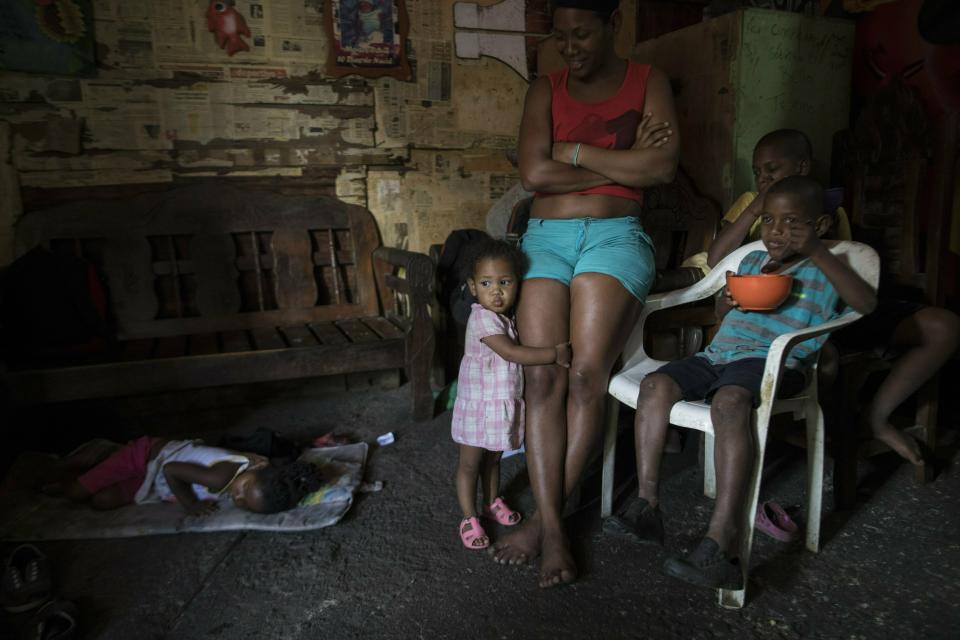Venezuela's top court targets opposition lawmakers
CARACAS, Venezuela (AP) — Venezuela's top court on Tuesday opened a criminal investigation against six opposition lawmakers following a failed attempt to spark a military uprising against President Nicolás Maduro.
The lawmakers are suspected of "betraying the homeland" and "instigating an insurrection," among other charges, said the pro-government Supreme Court. Those facing accusations include prominent figures in the Venezuelan opposition such as Henry Ramos Allup and Luis Germán Florido.
The court initially said seven faced investigation, but later lowered the number to six without explanation.
The action comes one week after opposition leader Juan Guaidó urged soldiers to oust Maduro, who has taken steps to reassert his authority in the aftermath of the failed uprising.
Additionally, the government announced that it was taking control of three private airports. Interior Minister Nestor Reverol described it as a necessary measure to "guarantee efficiency" and crack down on illegal activity.
Venezuela's opposition-controlled congress, meanwhile, met to discuss a proposal for the country's return to a regional defense agreement that dates from the Cold War — a move that could provide political cover for greater international involvement in the nation's crisis.
The matter was referred to an assembly committee.
Years ago, Venezuela and other left-governed nations had pulled out of the U.S.-led defense pact, the Inter-American Treaty of Reciprocal Assistance.
U.S. officials have repeatedly said they are considering military "options" in the Venezuelan crisis in addition to diplomatic and economic pressure that has been intensifying for months against Maduro.
Military police prevented journalists from entering the National Assembly, and some reporters were harassed by government supporters outside the building.
Venezuela's state-run internet provider restricted access to YouTube, some Google services and other streaming platforms during the assembly session, according to NetBlocks, an online censorship-monitoring group based in Europe.
The lights in the chamber went out temporarily as a senior assembly member, Edgar Zambrano, was speaking. The cause of the power cut was unclear.
Last week, Venezuela's top court opened a treason investigation of Zambrano, who had joined Guaidó outside a military base in Caracas during a failed call on the armed forces to overthrow Maduro. The appeal to the military was followed by deadly clashes between police and protesters.
The United States recognizes Guaidó, head of the National Assembly, as Venezuela's interim president, saying Maduro's re-election last year was rigged.
Guaidó earlier Tuesday met top diplomats from some of the more than 50 countries that support his campaign to seize power from Maduro, whose allies include Russia, China and Cuba.
A group of mostly European nations is looking to send a high-level delegation to Caracas in the coming days. European Union foreign policy chief Federica Mogherini made the announcement in Costa Rica after a meeting of the countries. The International Contact Group wants to facilitate free presidential elections in Venezuela as soon as possible, a goal that it shares with Guaidó.
Maduro says he is the target of a U.S.-engineered coup plot and has denounced the Guaidó-led assembly, instead recognizing a rival assembly packed with government loyalists that was set up in 2017.
In early April, the government-backed National Constituent Assembly voted to strip Guaidó of his parliamentary immunity from prosecution. Maduro, however, has not moved to detain his main adversary, possibly reflecting wariness over a likely backlash from the United States and its allies.




